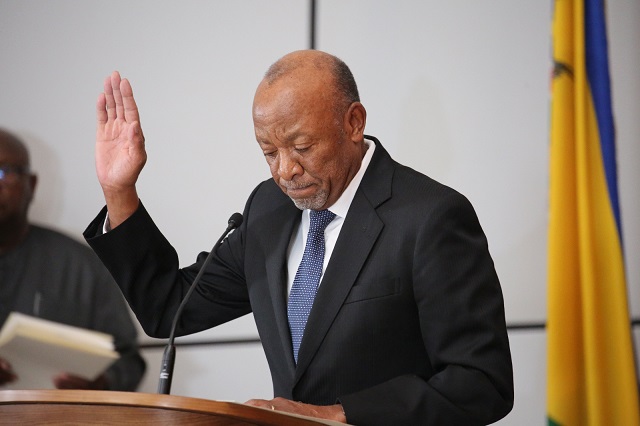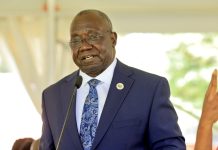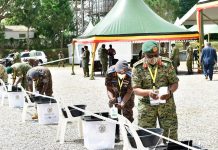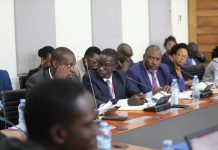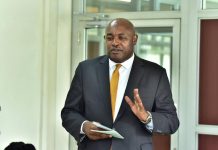Namibia underwent a significant leadership transition as Nangolo Mbumba assumed the role of interim president following the passing of President Hage Geingob. Notably, Mbumba declared that he has no intentions of running in the upcoming elections, deviating from the common trend of leaders seeking prolonged terms. This decision ensures that Netumbo Nandi-Ndaitwah, nominated by the SWAPO party over a year ago, remains a candidate and could potentially make history as Namibia’s first female president.
In a swearing-in ceremony, Mbumba expressed gratitude for the honor bestowed upon him and emphasized his commitment to serve until the conclusion of Geingob’s term in March 2025. Geingob’s unexpected demise marks the end of an era and leaves behind a nation facing economic challenges and pursuing a green energy agenda. Namibia, a mining hub rich in diamonds, uranium, and lithium, has been under SWAPO’s rule since gaining independence in 1990.
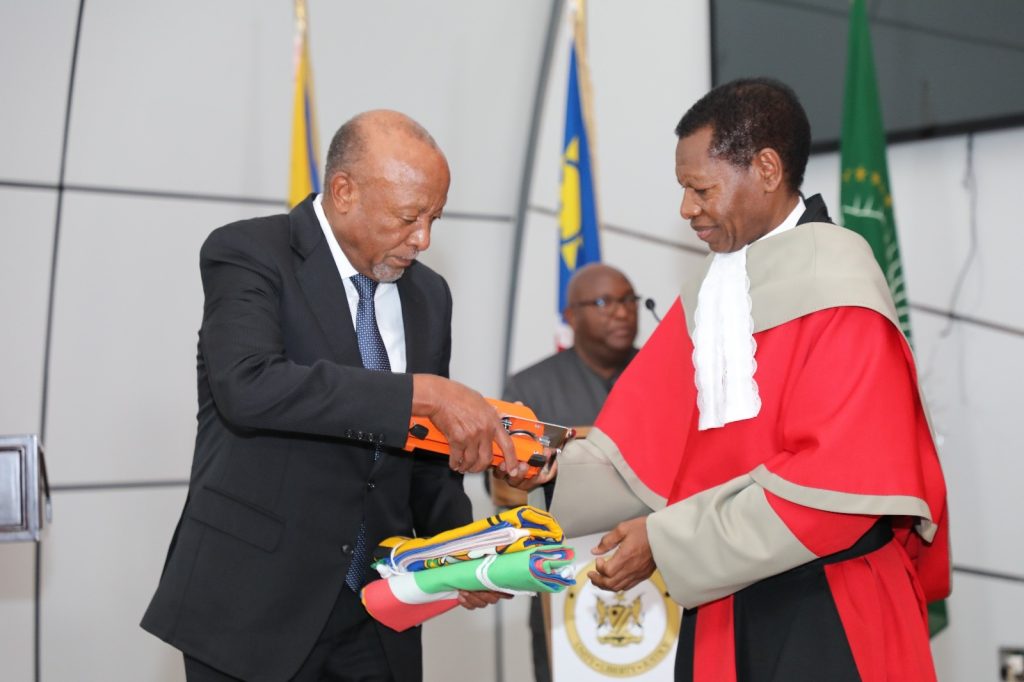
Geingob’s leadership focused on steering Namibia toward a prominent role in the global green economy, culminating in agreements to supply the European Union with green hydrogen and essential minerals. The country even initiated the construction of Africa’s first decarbonized iron plant powered exclusively by green hydrogen, setting an example for sustainable steelmaking.
As Namibia mourns, Mbumba’s ascension to the presidency is coupled with the swearing-in of Netumbo Nandi-Ndaitwah as the new vice president. The Cabinet promptly formed a higher-level committee to oversee funeral arrangements for the late President Geingob. Mbumba, in his acceptance speech, vowed to uphold the legacy established by past leaders and serve the nation diligently until the next elections in 2025.


